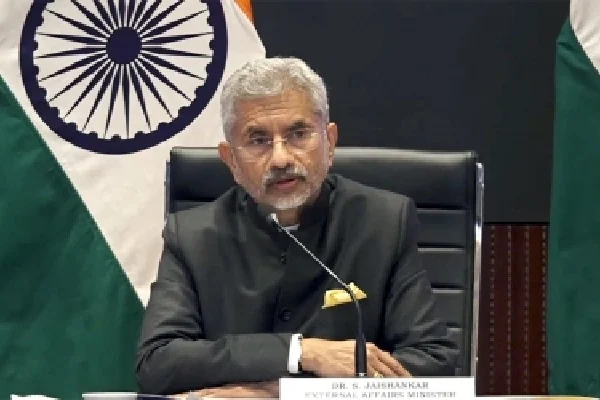External Affairs Minister S Jaishankar has firmly defended the Citizenship Amendment Act (CAA) against criticism from the United States, asserting that the remarks made lacked a proper understanding of the historical background of the law. Speaking at the India Today Conclave, Jaishankar emphasized that the CAA was introduced to address the challenges stemming from the partition and noted that the global response seemed to overlook the historical context.
Jaishankar’s remarks came in response to comments made by the US Ambassador to India, Eric Garcetti, who underscored the importance of principles such as religious freedom and equality in a democracy. However, Jaishankar reiterated that he, too, had principles, including an obligation to people who were let down during the partition. He emphasized that the CAA aimed to provide relief to those affected by the partition and highlighted examples from across the world where similar measures had been adopted to fast-track citizenship for specific ethnic minorities.
One such example cited by Jaishankar was the Jackson-Vanik amendment, which suspended most-favored-nation status to certain countries, including the Soviet Union, based on restrictions on emigration. The Lautenberg Amendment, introduced in 1990, facilitated refugee status for specific groups, such as Jews and certain Christian minorities, from countries like the former Soviet Union, Laos, Cambodia, and Vietnam. Additionally, the Specter Amendment expanded the scope to include Iranian religious minorities facing discrimination.
Jaishankar’s defense of the CAA is not new, as he has previously argued its merits during international forums. In February 2020, during a meeting of EU foreign ministers in Brussels, he compared the CAA rules to immigration and refugee resettlement policies in Europe, highlighting the use of national or cultural criteria by many EU countries.
The CAA, enacted by the Central government in December 2019, aims to provide citizenship to undocumented non-Muslim migrants from Pakistan, Bangladesh, and Afghanistan who arrived in India before December 31, 2014. Under the CAA, individuals belonging to six specific religious minorities – Hindu, Sikh, Buddhist, Jain, Parsi, and Christian – who have faced religious persecution in these countries are eligible for citizenship.
Despite criticism from some quarters, the Indian government has defended the CAA as a humanitarian measure aimed at addressing the plight of persecuted minorities in neighboring countries. Jaishankar’s assertion at the India Today Conclave underscores the government’s commitment to upholding the principles of equality and justice while addressing the challenges posed by illegal migration and religious persecution.
It is important to note that the CAA has been a subject of debate and discussion both domestically and internationally, with some expressing concerns about its potential impact on India’s secular fabric and its implications for religious minorities within the country. However, the government has maintained that the CAA is consistent with India’s long-standing tradition of providing refuge to persecuted communities and upholding the principles of religious freedom and equality.
Jaishankar’s defense of the CAA reflects the government’s steadfast commitment to its implementation and its willingness to engage with critics to address their concerns. As the debate over the CAA continues, it remains to be seen how the government navigates the domestic and international discourse surrounding this contentious issue.
